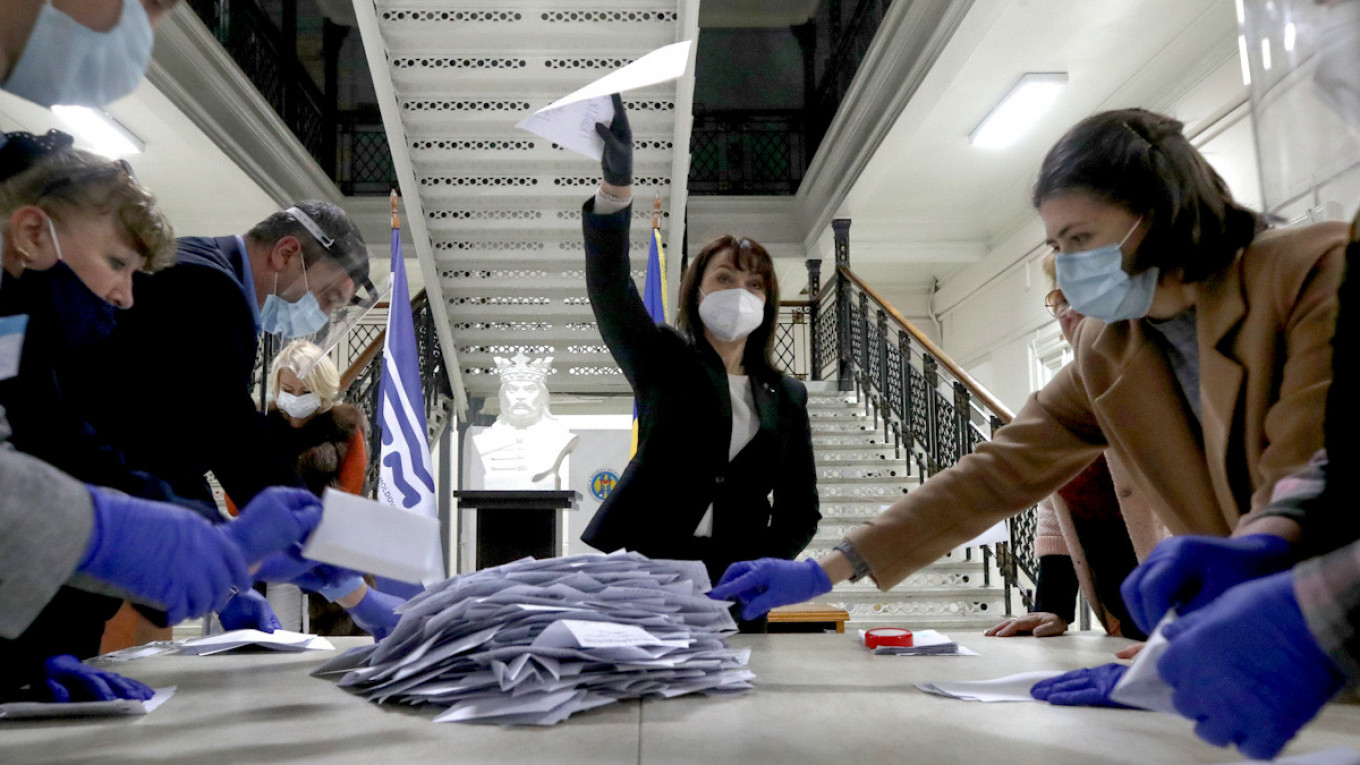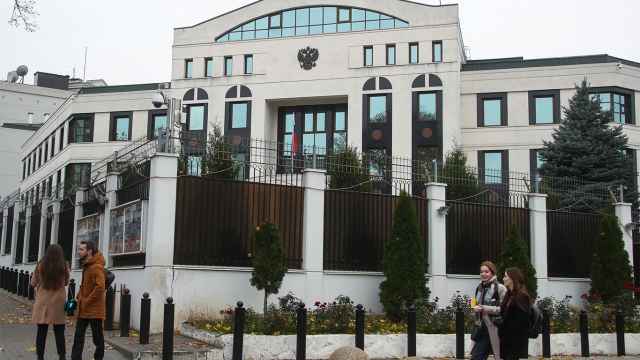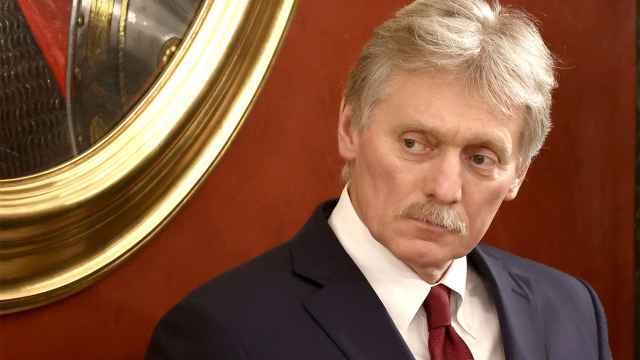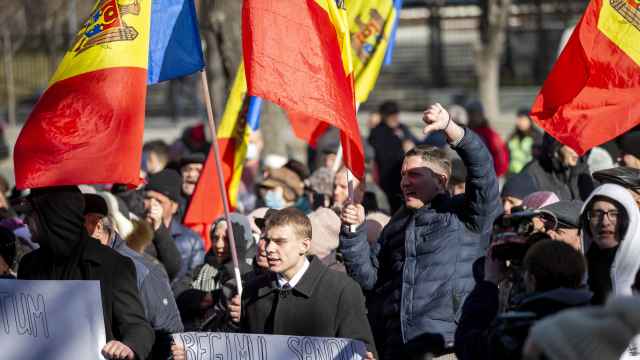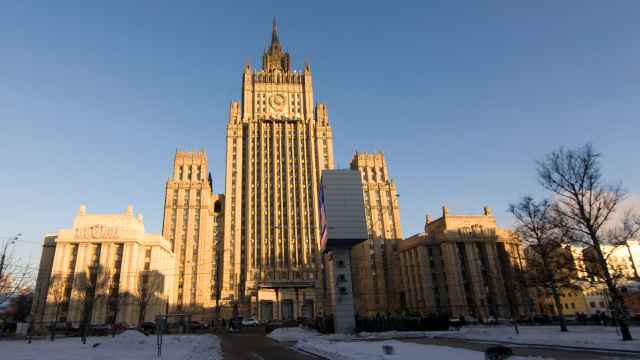Moldova's pro-European presidential hopeful Maia Sandu won a surprise first-round victory, a major setback for Moscow-backed incumbant Igor Dodon that suggests a tight second round later this month.
The small former Soviet country voted under the watchful eye of Russia, which wants polarized Moldova to remain in its sphere of influence as several nearby Kremlin-aligned governments are rocked by political unrest.
Sandu, a 48-year-old center-right politician who worked for the World Bank and briefly served as prime minister, won 36% of the vote against Dodon's 32%, the Central Elections Commission said.
Voters "demonstrated that good can prevail," Sandu said in response to the results.
"We will have the chance to put Moldova on the right track and together build a functional state that works for its citizens," she added ahead to the second-round vote on Nov. 15.
Dodon said he was "convinced" of a repeat of the 2016 elections in which he won office by beating Sandu in the second round.
"We cannot allow the destabilization of the country," he said, or allow the head of state to be a puppet of interests abroad.
He also criticized the diaspora for backing Sandu and holding a vision for the country that he said went against "the main part of the population working in Moldova."
'Waiting for change'
Dodon, who served as economy minister under a Communist government between 2006 and 2009, has pledged continued close ties with "strategic partner" Moscow and has said the Russian language should become compulsory in schools.
But "Dodon has paid the price for several corruption scandals, which have seriously damaged his image, and for the mismanagement of the health crisis caused by the pandemic," political analyst Denis Cenusa told AFP.
Analysts said the final results will be swayed by candidates knocked out of the race who will now throw their support to either Sandu or Dodon.
In third place was Renato Usatii, leader of Our Party, a populist anti-system group followed by Violeta Ivanov of the Shor Party whose founder was sentenced in 2017 to nearly eight years in prison for money laundering.
Cenusa says their support could turn out to be a poisonous gift for Sandu.
"Flirting with these parties, whose leaders have been accused of various irregularities, could cost her votes within her own base," he said.
"Sandu will have to decide if she is ready to compromise her reputation of a person of integrity to attract voters from other candidates," he added.
Part of the Soviet Union until its collapse in 1991, the country lies between Ukraine and Romania, which it has close historic ties, including a shared language.
Moldova has been rocked by multiple political crises and a $1 billion bank fraud scheme equivalent to nearly 15% of the country's annual output.
The impoverished country of 3.5 million has long been divided between those favoring closer ties with the EU and those who cling to Soviet-era relations with Moscow.
"For thirty years we have been waiting for change. How do you expect people who work abroad to come back as long as there is so much corruption here?" asked Vasile Mardare, a 64-year-old teacher.
"I voted for the candidate who will bring Moldova closer to the West's standard of living," he told AFP.
A Message from The Moscow Times:
Dear readers,
We are facing unprecedented challenges. Russia's Prosecutor General's Office has designated The Moscow Times as an "undesirable" organization, criminalizing our work and putting our staff at risk of prosecution. This follows our earlier unjust labeling as a "foreign agent."
These actions are direct attempts to silence independent journalism in Russia. The authorities claim our work "discredits the decisions of the Russian leadership." We see things differently: we strive to provide accurate, unbiased reporting on Russia.
We, the journalists of The Moscow Times, refuse to be silenced. But to continue our work, we need your help.
Your support, no matter how small, makes a world of difference. If you can, please support us monthly starting from just $2. It's quick to set up, and every contribution makes a significant impact.
By supporting The Moscow Times, you're defending open, independent journalism in the face of repression. Thank you for standing with us.
Remind me later.


